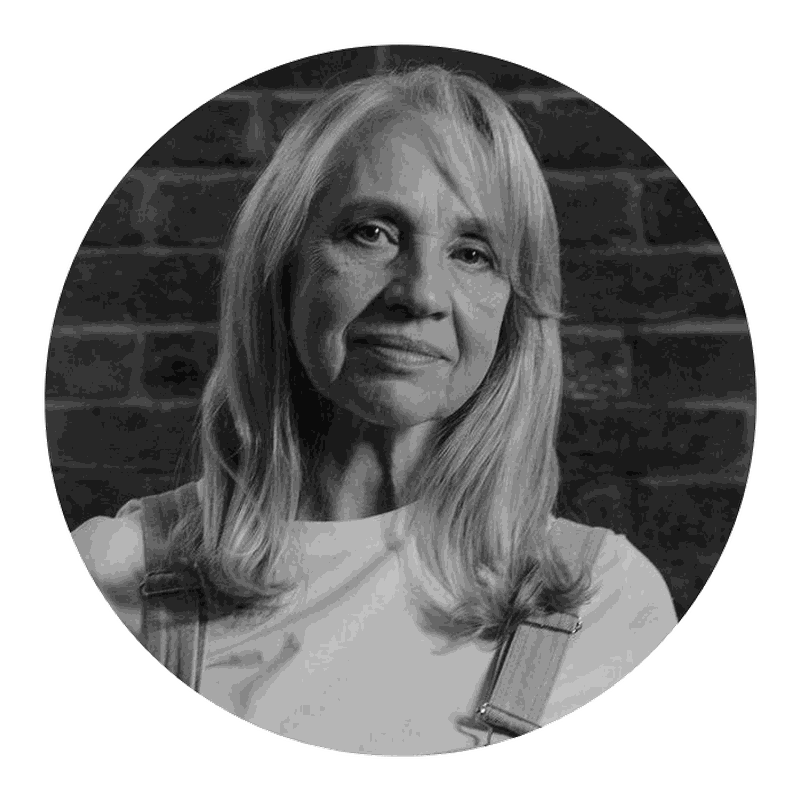
What To Know About University In Later Life
Research Your Options
Before you start to think about studying for your first, second or even third degree, it’s important to do thorough research about your choice of university and course, suggests mature student tutor Kate Lam. “As a mature student, your priorities will be considerably different to those who have just finished school and their A Levels – think about where you want to study, what’s going to fit into your home life if you have a family to consider and support and, most importantly, what you want to study. Are you making a career change or simply studying for enjoyment in later life? If it’s the former, look to the Complete University Guide and UCAS to compare universities against each other. You can see how they perform by subject, region, student satisfaction, as well as seeing how many mature students they typically accept per year. Conversely, if you want to study something vocational or are going back to university for a hobby, where you don’t need a specific degree, you might want to base your choice on location or flexible studying hours.”
Take Entry Requirements Into Account
“One of the main things to consider when applying to university is the entry requirements,” says Kate. “Those in their fifties and beyond need to ensure they have the right qualifications before they apply. While most universities accept A Levels and the International Baccalaureate, many also take into account other qualifications, such as O Levels and apprenticeships. If you left school without qualifications, you could consider taking a Higher Education Diploma. Most courses are flexible and there is a wide variety of subjects to choose from. These types of courses typically start from £3,000, but lots of people will be eligible for a loan, so it’s always worth seeing if you qualify for one.”
Another alternative is a foundation course – an ideal choice if you’ve had a long break from education. “If you don’t want to undertake further studying before going to university, several universities also take work or ‘life experience’ into consideration,” says Kate. “London Metropolitan University, for example, accept students with no formal qualifications but with experience elsewhere within a certain field or industry. Do your research and make sure you’re happy with the entry requirements before applying anywhere – open days are a great way to ask questions and find out what your options are,” adds Kate.
Consider Different Types Of Accommodation
“Most mature students choose to live at home while studying full- or part-time, but it’s worth exploring the options. If finances allow, you could consider staying in mature student halls or accommodation. This won’t appeal to everyone, but for those who missed out on a university experience when they were younger, it’s a great option. It’s also a good way to make friends and meet new people outside your course – something that’s really important if you’re away from home and living in a new city,” says Kate. “However, one of the appeals of studying later in life is that you can do so at home. This is particularly true after a year in lockdown when we’re all used to spending more time with family members and children,” explains Kate.
Apply For Loans And Grants
As a mature student, you might be eligible for a loan, grant, or other types of funding. Mature students can still apply for government student loans, while some universities offer special bursaries or scholarships. “The government has several initiatives to help mature students back into higher education, such as Childcare Grants and Parents’ Learning Allowances, which are available if you’re a full-time student with children, depending on your household income,” explains Kate.
As well as taking advantage of financial support, you could also look to other ways to keep costs down – for example, full-time students of any age are exempt from paying council tax. You could also be eligible for discounted travel and various student discounts.
Take Advantage Of Liaison Officers
“Before, during and after completing your course, take advantage of student liaison officers,” says Kate. “Their role is to support you throughout your studies, both academically and pastorally. They are particularly useful to mature students as they have insight on higher education later in life – use the service and be sure to book one-to-one meetings with your designated officer or tutor.”
Feeling inspired? Here, Kate recommends four universities for mature students…
The Open University
“A great option for mature students, The Open University has plenty of options to choose from, all of which are studied online. Ideal for remote or flexible working, you can combine courses, and choose from postgraduate courses, too. Fees here tend to be cheaper than campus-based universities.”
Visit Open.ac.uk
Birkbeck, University of London
“At Birkbeck, classes are held in the evenings so you can fit studying around your life. Attracting thousands of postgraduate and mature students from London and further afield, they offer short, foundation and undergraduate courses.”
Visit BBK.ac.uk
University of Greenwich
“At the University of Greenwich, over 40% of students are aged 30 and over. They take relevant life skills into consideration, in addition to formal qualifications, plus they have halls for mature students.”
Visit GRE.ac.uk
University of Bath
“Specialising in science, mathematics and other courses like psychology and politics, the University of Bath regularly scores highly in the league tables. They have detailed information on how to apply as a mature student, as well as a great liaison officer team.”
Visit Bath.ac.uk
Here, three women share their experience of university later in life…

Annabelle Blackhurst
“I started work in a Manchester textile company when I was 20 as a junior assistant and ended up as sales and marketing director for a Hong Kong-based clothing supplier. But after 13 tremendous years, I’d had enough of living out of a suitcase in the Far East and wanted to be permanently based in London. While deciding what to do next, I took a temp job at the Evening Standard and ended up staying for nine years as PA to the Editor. They were two very different jobs, but both were hugely interesting and lots of fun.
“At the age of 58, and after 16 years at home raising my children, my husband encouraged me to consider going to university. I’d not gone onto higher education after school, opting to go straight to work instead as I was desperate for independence and to leave home. So, I decided to go for it and I’ve just come to the end of my first year studying Therapeutic Psychology full-time at Roehampton University.
“I’m absolutely loving my course and being a mature student. Due to Covid, of course, the whole year has been online which means I haven’t met any of my tutors or fellow students in person yet, but being at home with my family through the pandemic has suited me really well. I wish I’d known that studying later in life could be so rewarding. It’s been fascinating to find out why we all do what we do in terms of psychology.
“I’ve had loads of support from the university and I’m very impressed by their input. Although I was nervous about writing assignments a year ago, the support I’ve received has been great. My course has a whole range of ages from 18 upwards, including lots of older students like myself – age doesn’t seem to matter as we’re all in the same boat. Although the pandemic has stopped us from meeting in person, we’ve bonded through the online sessions and WhatsApp – I’m in a group chat with 16 others and we help each other all the time.
“My advice for other women who are thinking about studying later in life would be to go for it, as it’s never too late and you’re never too old to learn something new. I’ve had the best year and it’s opened a window to another side of life. I’ve got to know many fascinating people, from my tutors to other students. I’ve also learnt so much but know I’ve got loads more to learn, which feels great. Now, I really look forward to Monday morning lectures, much to the amusement of my family!”

Simone Picard
“When I finished school, I quickly decided that I wanted to be social worker. I managed to get several work experience places then decided to do a degree in social work a few years later. After graduating, I specialised in helping young people with mental health conditions. My career was incredibly fulfilling, but it was challenging juggling it with my home life at times. It took a toll emotionally, and there were times where I questioned my career choices but, looking back now, I’m glad I was able to make a difference to people’s lives.
“Ten years ago, at the age of 55, I decided to take sabbatical leave and go back into full-time education to study Art & Design at the University of East London. I’ve always had a creative flair and have sold paintings and drawings to friends and families over the years. After working continuously and raising two children, I thought it was time to try something new and make time for myself.
“I was nervous about being a mature student in my fifties at first, but those nerves were dispelled after my first week on the course. Creative courses tend to attract a variety of people from diverse backgrounds – I loved meeting new people of all ages and made several friends. I never felt out of place, my only regret was that I hadn’t started sooner. My tutors were excellent, and I always looked forward to their feedback.
“Going back to university was a big financial commitment, but a worthwhile investment. I dipped into my savings to pay for the course, and received help from my mother too, which was invaluable. I wish I’d properly calculated how much it would cost in total – I was surprised how quickly art supplies added up, particularly in my final year when I had to submit several projects. If I were to do it again, I’d make sure to budget everything first and set some funds aside just in case.
“It can be daunting to start something new later in life but going back to university has been invigorating. I’ve learnt so many things and have made life-long friends. As women, society tells us that we have an expiry date, but that couldn’t be further from the truth. You’re never too old to try something new – in fact, when you have more time on your hands and your children are grown up, it’s the perfect time to go for it. When I finished my degree, I went back into social work part-time, and was able to focus on my artwork. Later this year, I hope to open my first exhibition.”

Leslie Taylor
“I’m originally from Australia and moved to the UK in the late 80s. After school, I studied French and German at university and went on to become a translator for various corporate companies. When I had my first child in my early thirties, I decided to take a career break to become a full-time mother. Luckily, my husband was able to support the family financially, so I was able to put my career on hold for several years.
“I decided to go back to university in 2004 to study maths at Brunel University. At the time, two of my children were also at university and the other two had left home, so I thought it would be a good time to give it a go. The mathematics course was challenging but I was delighted when I qualified with first-class honours in 2008. I’d always been good at maths at school and thought it would be an interesting course to take – whether I decided to go back into work full-time or not.
“Being a mature student was fantastic. Most of the people on my course were much younger than me, but there were a few other mature students, as well as some international students, two of which I’m still in contact with today. My children thought it was a little strange that we were studying at the same time, but they were incredibly supportive and encouraging – in fact, we had lots of studying sessions together at home during term time which was great.
“The one thing I wish I’d known beforehand was that mature students are also eligible to go on a placement year. It would have been a great way to try a new career, while studying at the same time, but by the time I realised it was an option, I was already close to finishing my degree. It’s so important to do your research before you go head-first into something like a degree, especially when you don’t have financial support from the government, like a student loan. However, it all worked out in the end as I managed to get a job as a data analysist for a Swedish finance company a year after graduating. I love my job now and, in my spare time, I tutor secondary school pupils too.
“For someone who wants to go back to university later in life, my advice would be to thoroughly research your options and different universities. I chose my university because it was close to home and the course looked interesting, but if I were to go it again, I would explore other options, perhaps even institutions outside London. Make sure you go to open days and speak to as many people as possible to get all your questions answered. I was a bit nervous on my own, so I wish I’d brought my husband or a friend along with me for a bit of confidence at the start.”
DISCLAIMER: We endeavour to always credit the correct original source of every image we use. If you think a credit may be incorrect, please contact us at info@sheerluxe.com.

